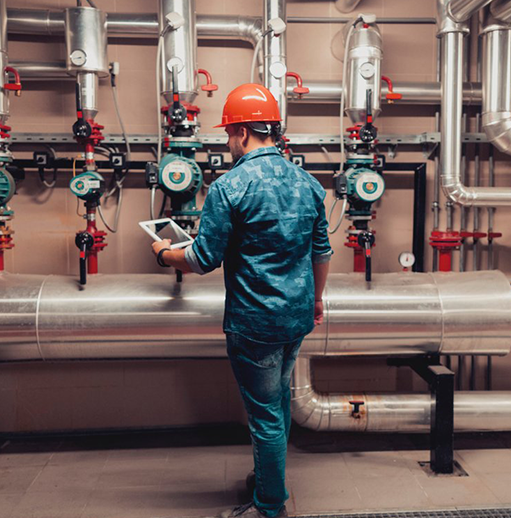
Do you need a facility manager, a facility strategist, or a space optimization specialist? Based on your specific spaces, would it make more sense to place a job ad for a director of facilities or a facilities coordinator? It might be that you need both, but how would you know? Understanding the different job titles related to integrated facility management is the first step to finding the facility professional with the combination of skills and experience that best matches your needs.
Manager and coordinator titles for FMS
Why are there so many ways to say facility manager?
The industry tends to see facility oversight one of two ways: It’s either related to management or coordination. Both views make sense. Facility managers are managers, and their role in keeping facilities humming along definitely counts as coordination. So, a facility manager job description likely includes “manager” or “coordinator.”
There’s more to facility management positions, though. Words like specialist, planner, lead, and administrator highlight the broad oversight inherent to the position. How we use the terms depends on how the hiring company sees the role of the facility manager. Are they more of a specialist doing things nobody else can? Or are they a leader who delegates tasks? The answer dictates the job title.
In some cases, the question is more academic, while in others, it comes down to the practical considerations of the specific facility. For example, the relative sizes of the facility and the facility or maintenance teams might decide if the position is more about managing than coordinating.
Here are some of the most common synonymous titles for facility manager:
- Facilities Administrator
- Facilities Helpdesk Lead
- Facilities Supervisor
- Facilities System Specialist Facility Coordinator
- Global Corporate Properties
- Coordinator
- Global Workplace Manager
- Manager of Real Estate
- Move Coordinator
- Occupancy and Space Planner
- Office Services Manager
- Space and Facility Management Specialist
- Space Management Specialist
- Space Planner
- Space Planning Manager
- Workplace Services Manager
- Workspace Manager
Notice the common theme — they’re all qualified by space, workplace, facility, and real estate. Ultimately, a facility manager’s role is defined by what workplace aspects they oversee. In some cases, they might be working more closely with the maintenance lead. In others, with office managers.
Strategist titles in facility management
Is a facility manager a strategist? The number of strategy-focused job titles suggests they are. It makes perfect sense to see facility management as a strategic position. A lot goes into managing space, people, and technology — and bringing all these different aspects together certainly takes strategic thinking.
So, it’s not surprising how many strategy-related job titles there are. But it’s interesting how wide a range there is of strategic concepts in facility manager job postings, including:
- Facilities Strategic Planner
- Facilities Strategist
- Real Estate Strategic Manager
- Space Planning and Logistics Leader
- Strategic Site Planner
- Workplace Strategist
Strategic facility management is less a job title and more an approach, which is why it often needs clarification within the industry. Strategy is key in bringing facilities together, so many companies proactively seek strategic individuals by putting this qualifier in the job title. Not only does it help to attract the best candidates, but it also gets them thinking about strategy right away.
Analyst titles related to facility management
As digitization transforms the workplace, facility management is increasingly impacted by big data. It can generate opportunities for complete energy solutions, business value, and the best customer service satisfaction in any facility. So, individuals interested in a facility management career path need to become familiar with collecting and processing data. In the end, they become analysts of sorts. Which explains the increase in analyst-focused job titles within the facility management field, including:
- Facilities Planning Analyst
- Facilities Program Analyst
- Facility Maintenance Analyst
- Real Estate Analyst
Like the “strategic” segment of job titles, adding “analyst” to the facilities manager job title helps everyone understand what’s expected. Anyone applying for this position should be comfortable with data and knowledgeable in how to put it to work. The demands of a traditional facilities position still exist, but those in the field are now expected to be well-versed in data-driven processes and decision-making. After all, what’s an analyst without data? What are facilities without insights to shape everything from day-to-day standard operating procedures to special projects?
Job title hierarchy in the FM industry
On top of seeing job titles in terms of focus, you can also think of them as part of a larger hierarchy. Just like everyone else in the C Suite, the absolute head of facilities has “chief” in their title, including:
- Chief Facilities Officer
- Chief Facilities Management Officer
- Chief of Facilities
But not always, because you can also have the Global Head of Facilities. Moving down the organizational chart, you’ll find:
- Vice President of Facility
- Facility Director
- Facility Manager
In many organizations, the lower you go on the chart, the more specialized the role. So, working under the facility manager, you have the facility coordinator, facility engineer, space planner, workplace wellness coordinator, and the safety and occupational health specialist. As people move up, they tend to become more generalists.
At the base of the chart, you have titles for professionals just starting or early in their careers. Often, the titles are the same as the ones above, but with an added “intern” or “junior.” As they move up, they drop the qualifiers before adding new ones, “senior,” for example.
Different names for the same thing
Still confused? Don’t worry, you’re not alone. Thankfully, “facility manager” is still the main and operative title in most job postings and professional circles. If you ask questions like “What certifications does a facility manager need?” or “How much does a facility manager make as a base salary?” you’ll get the information you need. You’re only likely to encounter a lesser-known title if you’re looking into a specialized field. And while you might not run into many of these titles, it still helps to know them and how they differ from one another.
It can also be helpful to keep an eye out for new titles or older ones that appear to be making a comeback. By paying attention to the ones most common in job postings, you can get a sense of where the industry is heading overall. So, for example, if there’s a sudden bump in the number of postings looking for “strategists,” you know it’s time to start focusing on learning new or polishing existing strategy skills. Another example might be a rise in the number of companies posting openings with “real estate” in the title. Once you see that, you know that more organizations are looking to optimize their leases.


